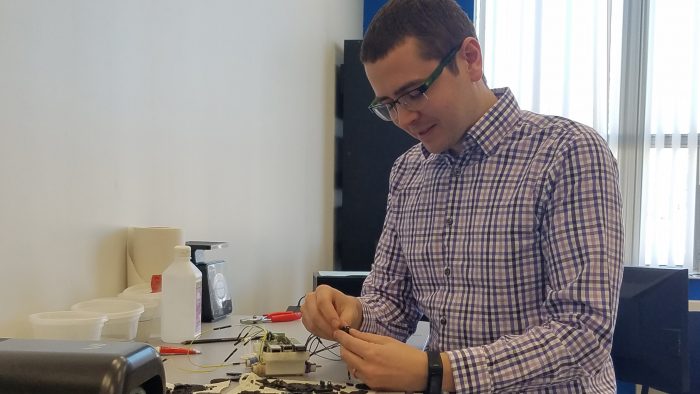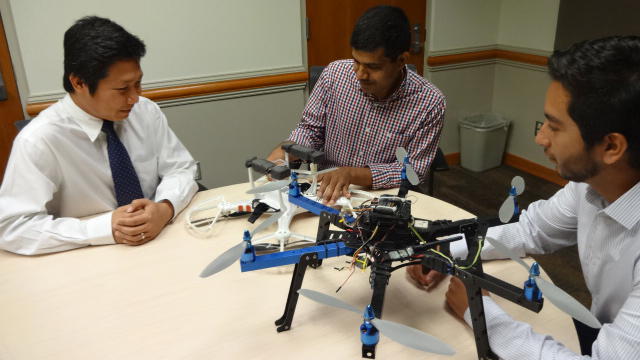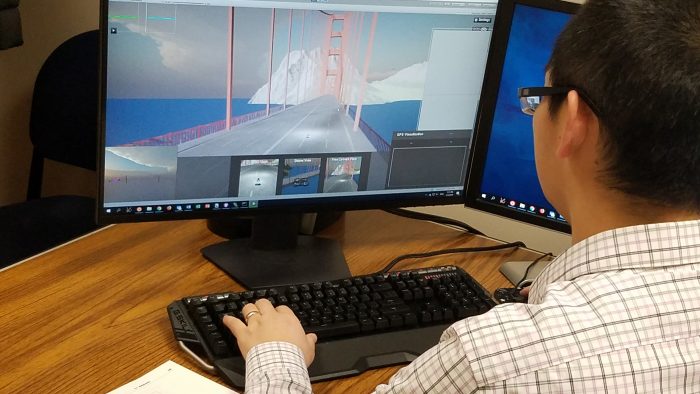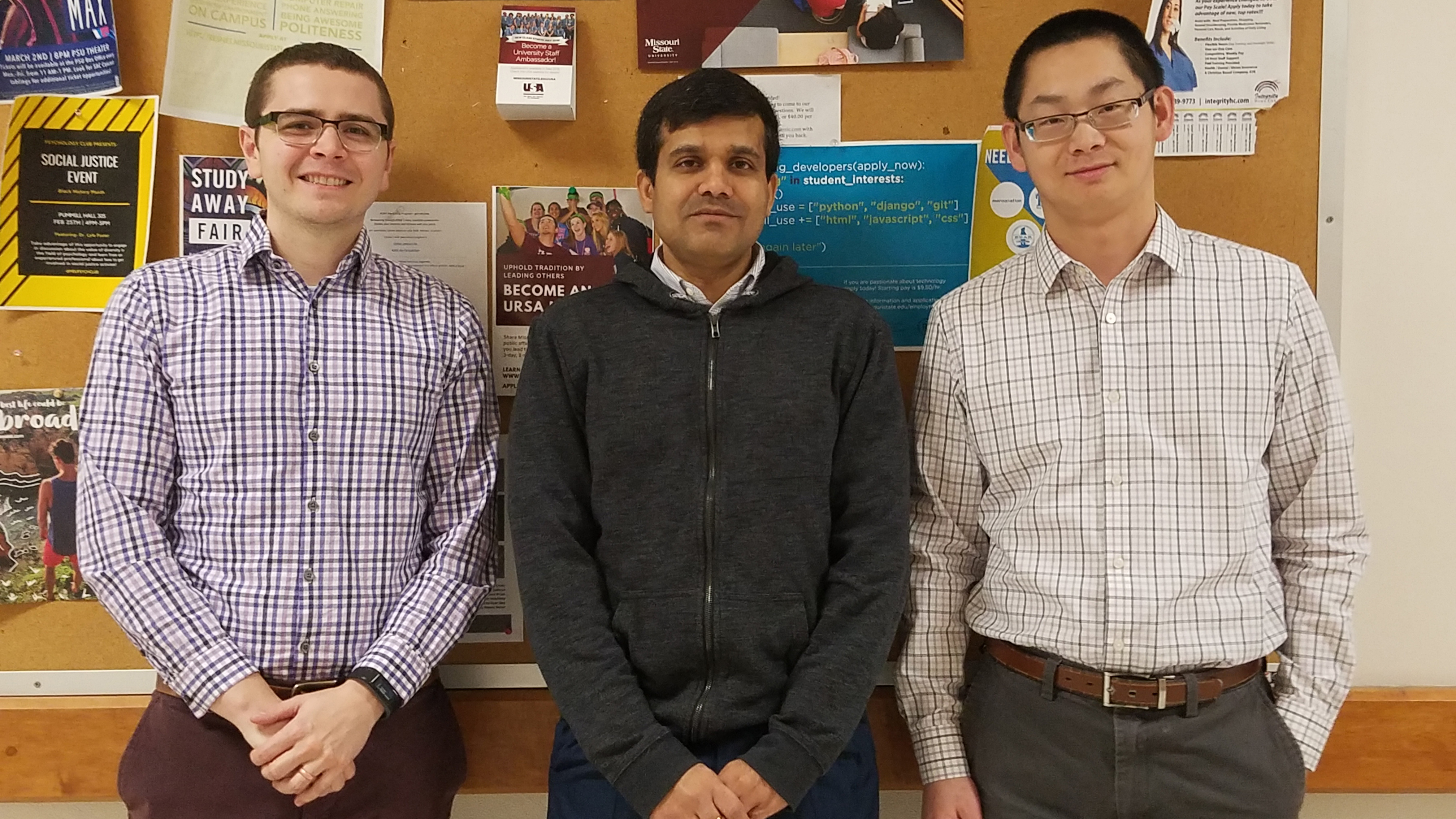Sometimes, one small piece of equipment can make all the difference. NVIDIA, a computer game company, awards researchers equipment to continue their work.
Three Missouri State professors were awarded NVIDIA products.
Dr. Anthony Clark
Dr. Anthony Clark, assistant professor of computer science, was recently awarded a Nvidia Quadro P6000 Graphic Processing Unit (GPU).
This technology lets Clark continue his research with robots.
Clark wants to make robots to help people. Currently, he is working on a way to train robots.

In an unpredictable environment, it could be hard for a robot to plan out the next best move.
One example hits home for many people in the Midwest.
“These robots can be used after a natural disaster, like a tornado, to help first responders search for people that may be injured,” Clark said.
This grant supplies one piece of equipment. Without it, there would be no project.
“This GPU grant will help me train neural networks so that a robot can make smart decisions about path planning,” Clark said.
Dr. Ajay Katangur
Dr. Ajay Katangur, department head of computer science, was awarded a NVIDIA Titan V GPU.
While Clark works with weather events, Katangur focuses on computer security and unmanned aerial systems (UAS). He analyzes images using deep convolutional neural networks and other techniques to better predict crop yields.

Katangur is excited to work with larger data sets that will give him more information on crop yields.
“Without this grant, it would be impossible to work on such large data sets,” Katangur said.
He also wants to use this to create an intruder detection system (IDS), using data from the UAS.
“Humans rely on computers,” Katangur said. “To protect us from attacks, an effective IDS is needed.”
Dr. Siming Liu
Dr. Siming Liu, assistant professor of computer science, was also awarded a NVIDIA Titan V GPU.
Liu is going to install this technology in the new evolutionary computation laboratory.
This equipment gives students and faculty access to a CUDA enabled research platform.

“This lets us develop new parallel models and implement our parallel genetic algorithms for evolving artificial intelligence players for computer games and simulations,” Liu said.
Liu will use this to explore the link between artificial intelligence (AI) and computers games and simulations.
“Recent advances in artificial intelligence have significantly changed the way we live, learn and work,” Liu said. “AI makes it possible for machines to learn from experience, adjust to new inputs and perform human-like tasks.”
Liu is excited to continue his research, but he is also excited to share the Titan V GPU with students and other faculty for their research as well.
“Our approaches are applicable to solve real world problems in robotics, transportation and military training scenarios.”

